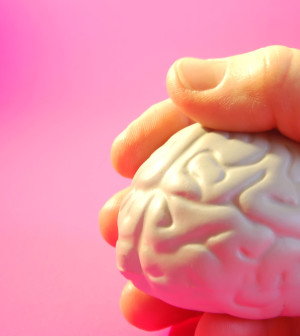- The Best Time of Day to Drink Bone Broth to Maximize Health Benefits
- 8 Ways to Increase Dopamine Naturally
- 7 Best Breads for Maintaining Stable Blood Sugar
- Gelatin vs. Collagen: Which is Best for Skin, Nails, and Joints?
- The Long-Term Effects of Daily Turmeric Supplements on Liver Health
- Could Your Grocery Store Meat Be Causing Recurring UTIs?
- Are You Making This Expensive Thermostat Error This Winter?
- Recognizing the Signs of Hypothyroidism
- 10 Strategies to Overcome Insomnia
- Could Artificial Sweeteners Be Aging the Brain Faster?
Many Who Survive Cardiac Arrest Don’t Suffer Brain Damage

Most adults who survive cardiac arrest away from a hospital don’t end up with brain damage, a new study finds.
Researchers analyzed data from about 3,800 attempted resuscitations of people whose hearts stopped beating in urban or suburban areas.
Of the 12 percent who survived, nearly 84 percent didn’t suffer significant brain damage. They had either normal function or slight disabilities that didn’t prevent them from living on their own and working.
About 90 percent of those who had little or no brain damage were resuscitated in 35 minutes or less. The other 10 percent took longer than 35 minutes, Dr. Jefferson Williams, from Wake County EMS in Raleigh, N.C., and colleagues said.
In general, those who ended up with little or no brain damage had their cardiac arrest witnessed by a bystander, and their hearts started beating again while emergency medical personnel were on the scene of the cardiac arrest, rather than while riding in an ambulance or at the hospital.
A related study found that hospital patients who suffer cardiac arrest at night tend to suffer more brain damage than those who had cardiac arrest during the day.
In this study, a team led by Dr. Luca Marengo at the University Hospital Basel reviewed the outcomes for 270 people who had cardiac arrest while in a teaching hospital in Switzerland. One-third of the cardiac arrests occurred during the night, the study found.
The reaction times of rapid response teams were similar during the day and night, the researchers said. But, patients who had cardiac arrest during the day were more likely than those who had cardiac arrest at night to be noticed. They were also more likely to have the type of heartbeat that responds to a shock from a defibrillator, and to have less brain damage, the study found.
The findings suggest that the higher risk of brain damage in patients who have cardiac arrest at night may be due to the fact that their condition is not noticed as quickly, the researchers said.
Both studies are to be presented Monday at the American Heart Association annual meeting in Orlando, Fla.
Research presented at meetings is viewed as preliminary because it has not been subjected to the scrutiny of a peer-reviewed publication.
More information
The U.S. National Heart, Lung, and Blood Institute has more about cardiac arrest.
Source: HealthDay
Copyright © 2026 HealthDay. All rights reserved.










